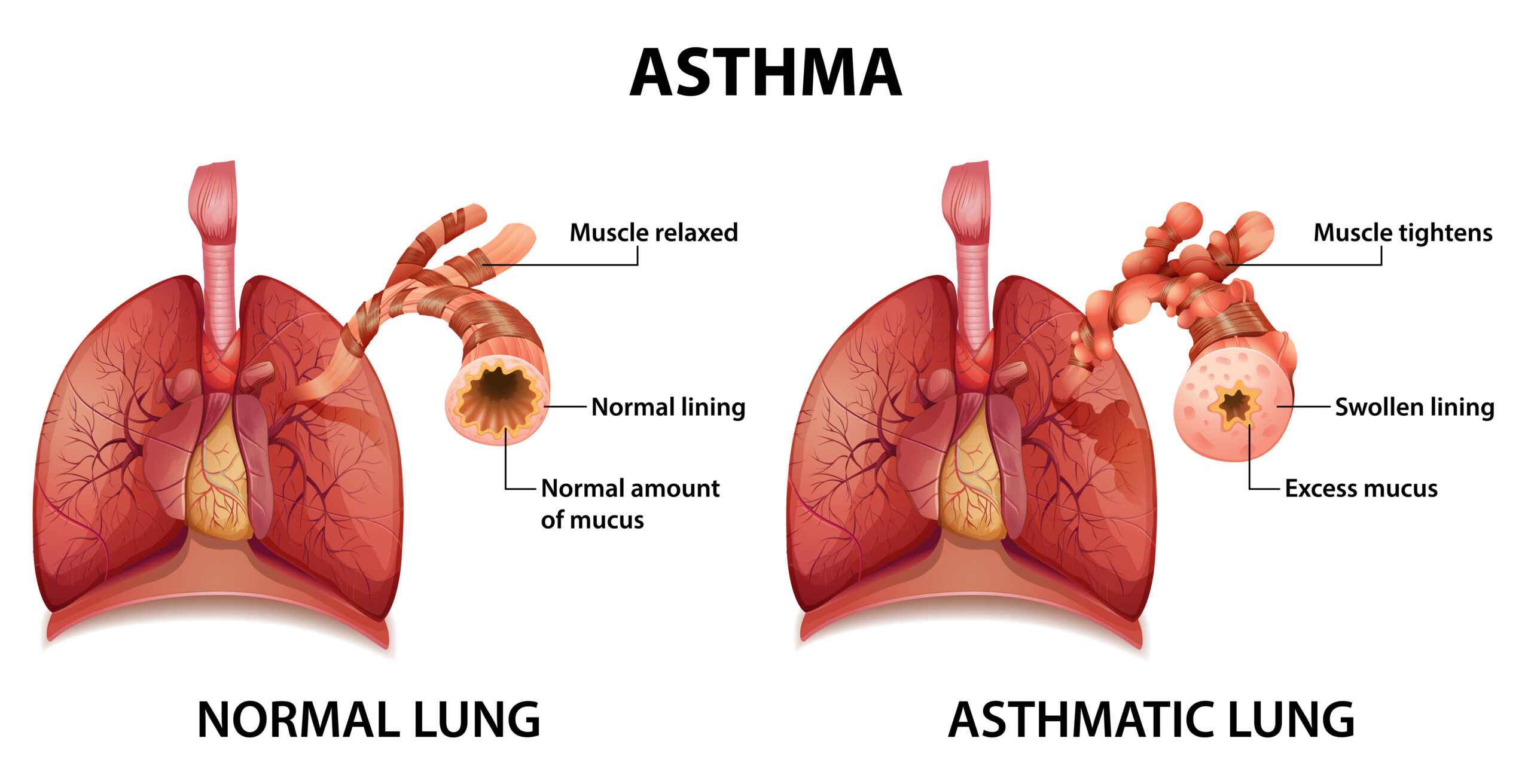Treatments Respiratory Ailments Asthma

Asthma: Symptoms, triggers and management
Asthma medications are available in two main types: quick-relief (short-acting bronchodilators) for immediate symptom relief during an asthma attack and long-term control medications (inhaled corticosteroids, long-acting bronchodilators) to reduce inflammation and prevent symptoms; but in the long-term steroids can weaken your bones.
Asthma is a chronic respiratory condition that affects millions of people worldwide. It is characterized by inflammation and narrowing of the airways, leading to recurrent episodes of breathlessness, wheezing, coughing, and chest tightness. In this article, we will delve into the intricacies of asthma, its symptoms, common triggers, and effective management strategies.
Symptoms of Asthma
The symptoms of asthma can vary from person to person and may range in severity. Some common signs to watch out for include:
Identifying Triggers
Asthma symptoms can be triggered by various factors, including:
Effective Asthma Management
While asthma is a chronic condition without a cure, it can be effectively managed with proper treatment and lifestyle modifications. Here are some key management strategies:
Conclusion
Living with asthma requires active management and awareness of potential triggers. By opting HOMEOPATHY THROUGH DR. SINGH’S HOMEOPATHY, YOU CAN HAVE A GENTLE AND PERMANENT CURE. With our expertise and experience, we have successfully treated numerous patients and helped transform their lives. Embracing the principles of homeopathy, our dedicated team is committed to providing personalized care and promoting long-lasting healing.

